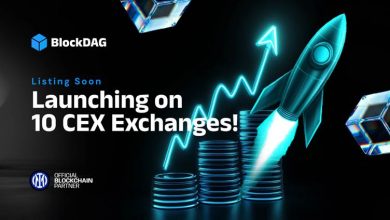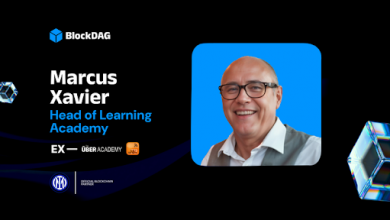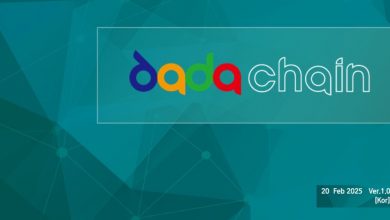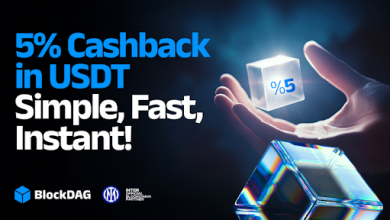Interview with Chris Kirksey, CEO, Direction.com
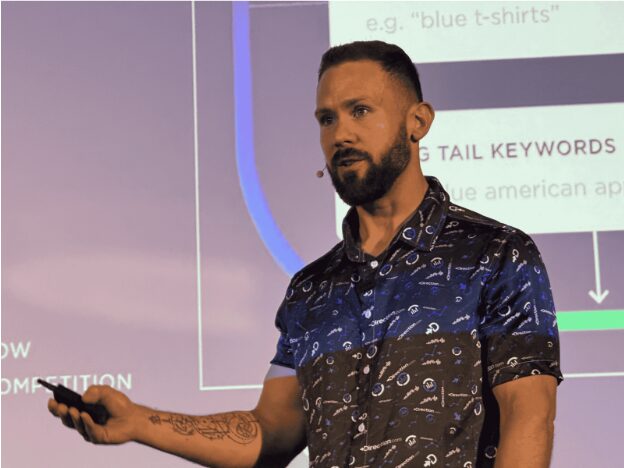
This is an interview with Chris Kirksey, CEO, Direction.com
Chris, can you tell us a bit about yourself and your journey to becoming a CEO in the digital marketing space?
My journey to becoming a CEO is rooted in my early years making money online, then by my military and intelligence background. In the Army, I learned that leadership begins with setting the example—showing discipline and personal excellence in all areas of life. My experience with the NSA and CIA taught me to thrive in unpredictable circumstances, master multiple languages, and excel in strategic planning, analytical thinking, and clear communication.
These skills prepared me to lead a team of expert marketers and build a successful healthcare SEO company. The decision to transition from intelligence work to entrepreneurship came from two main motivations. First, my entrepreneurial drive: I’ve always been passionate about solving complex problems and providing solutions that help others, which gave me the confidence to create a company where elite performance and innovation drive results, especially in the healthcare space.
Second, the importance of family and stability: I realized that constant deployments weren’t sustainable, and I wanted a career that balanced strategic growth with a strong foundation for me to build a family. Our mission at Direction.com is to build an organization where our team and customers could thrive. Our values—elite performance, innovation, and value creation—are not just words but the cornerstone of how we operate. My leadership philosophy, shaped by years of discipline and adaptability, directly influences our culture.
We prioritize setting high standards, performing at our best, adapting to industry changes, and executing strategies with precision. When our team thrives, our customers succeed, and that’s the ultimate measure of our success.

What pivotal moments or decisions in your career trajectory do you feel were instrumental in shaping your leadership approach and ultimately leading you to where you are today?
One pivotal moment in my career that shaped my leadership approach occurred during a deployment to Iraq. While traveling on dangerous roads, we came under attack, and I could have lost my life. That moment was a turning point. I realized I no longer wanted to risk my life as part of my job.
I wanted to channel everything I had learned—discipline, adaptability, strategic planning—into building something meaningful and sustainable. So I turned to the one other skill I knew well: making money online. Even though I knew nothing about building a company, I was confident that the stresses of entrepreneurship would pale in comparison to the challenges I’d faced in war zones. I embraced the idea that no obstacle was too great to overcome.
My mission became clear: to create a company that helps others make their entrepreneurial dreams come true. By focusing on marketing and SEO—specifically for healthcare providers and medical practices that help others—I could combine my passion for problem-solving with a greater purpose: enabling those who serve their communities to thrive.
You’ve spoken about the power of Programmatic SEO and its impact on Direction.com’s growth. Can you elaborate on a specific instance where this strategy led to a significant ‘aha’ moment or unexpected breakthrough?
One of the most significant breakthroughs with Programmatic SEO came when we applied it to our own website. We developed over 300 highly-targeted landing pages for SEO services across different cities in the U.S. These pages weren’t just mass-produced; each contained over 1,500 words of unique, high-quality content, strategically crafted using rhetorical devices, eloquence formulas, psychographic insights, and mathematical precision.
The result? These pages not only matched user intent better than any of our competitors, but within weeks, we had thousands of keywords ranking on page one. This strategy didn’t just boost visibility, it catapulted our business growth. We started driving 20–30 inbound leads each month from these pages, a significant step in our growth. The real ‘aha’ moment came when we realized this could be a game-changer for our clients as well.
Traditional SEO often takes 6–12 months to deliver results, but with our new approach to Programmatic SEO, we’ve shortened that timeline dramatically. For one client, we launched targeted pages and began generating new leads within just 24 hours.
This experience cemented my belief in a new way to leverage Programmatic SEO as a revolutionary tool—not just for scalability, but for providing immediate, measurable impact for our clients with pages that match search intent better than any others out there.
In your experience, what are some common misconceptions businesses have about SEO, and how do you advise addressing them within a company’s overall marketing strategy?
One of the biggest misunderstandings I encounter is viewing SEO as a low-cost, entry-level task that any marketing person can do. Some businesses outsource it to novices or overseas teams, expecting great results at bargain prices. The truth is, effective SEO is a highly-specialized skill that takes years to master. It requires expertise in data analysis, content strategy, copywriting, technical optimization/development skills, and user intent.
When done right, SEO can be one of the most valuable investments a company makes, delivering compounding returns over time that historically beat out every other form of marketing. I also see businesses treat SEO as a siloed effort, separate from the rest of their marketing strategy.
In fact, it works best when integrated with content marketing, social media, and PR. For example, high-quality content doesn’t just improve rankings—it also engages audiences and drives shares, amplifying SEO efforts organically. Finally, some businesses over-rely on SEO as their sole growth driver. While SEO is powerful, it’s most effective as part of a diversified strategy.
Combining it with paid ads, email marketing, and conversion optimization creates a robust funnel that captures leads at every stage of the customer journey. To address these misconceptions, I advise businesses to view SEO as a dynamic, high-value, and integrated part of their overall strategy in building a brand.
It requires expertise, ongoing investment, and alignment with broader business goals. When approached with this mindset, it becomes a transformative force for sustained growth.
You emphasize the importance of data-driven decisions. Can you share an example of a time when data analysis led you to make a critical pivot or adjustment to your SEO or marketing approach, and what the outcome was?
Data-driven decision-making has always been at the heart of our approach, and one recent example highlights this perfectly. We noticed a growing trend in traffic being driven by generative AI search engines like ChatGPT, which operate differently from traditional organic search engines.
This posed a challenge: How could we ensure our clients’ sites were optimized to be found in generative search results? To answer this, we analyzed millions of data points, studying patterns and extracting insights about how generative search engines prioritize and deliver content.
The analysis revealed several key factors that were distinct from traditional SEO. With this data in hand, we began optimizing our clients’ pages specifically for generative engines, incorporating new strategies to align with these unique algorithms. The results were remarkable. Within weeks, a majority of our clients began seeing increased traffic directly from ChatGPT and similar platforms.
This not only reinforced the importance of staying ahead of emerging trends but also demonstrated how data-driven pivots can open up entirely new growth opportunities for businesses.
Building a strong team is crucial for any CEO. What qualities and skills do you look for when building a team, especially in the ever-evolving digital marketing landscape?
Building a strong team starts with finding people who align with our core values: elite performance, innovation, and value creation. I look for individuals who are not just technically skilled but who bring passion to their work every day.
Adaptability is also essential. I look for people who are open-minded, willing to embrace change, demonstrate a hunger for continuous learning, and stay ahead of industry trends. Digital marketing requires a mix of technical expertise—like SEO, data analysis, and automation skills—and the ability to think creatively and strategically. Finally, I look for a results-driven approach. Success in digital marketing means focusing on measurable outcomes and consistently striving to exceed expectations. The best team members are those who take ownership of their work, remain accountable, and push themselves and the organization to new limits.
With the rise of AI in marketing, how do you see the role of human expertise evolving, and what skills do you believe will be most valuable for marketers in the future?
The rise of AI is revolutionizing marketing by automating repetitive tasks, providing insights on data sets, and even generating content (but still very limited there, unless properly prompted). However, as AI takes over these operational functions, the role of human expertise will evolve to focus on what machines cannot replicate: creativity, emotional intelligence, and strategic thinking.
Numbers show patterns, but humans feel truth. Marketing professionals who grasp both mathematics and meaning will win. Intelligence without imagination falls flat; wisdom comes from weaving digital insights with human understanding. Problem-solving and adaptability will also be critical, as marketers make decisions that align with both data and intuition. AI should be seen as a partner, not a replacement.
The most successful marketers will be those who can collaborate with AI, leveraging its strengths while bringing their own unique perspective to create innovative, impactful campaigns. By combining the efficiency of AI with the irreplaceable qualities of human expertise, we can achieve results that are greater than either could produce alone.
Work-life balance is a hot topic for CEOs. How do you personally approach this balance, and what advice would you give to aspiring entrepreneurs and leaders in managing their own well-being?
As a CEO, I’ve learned that work-life balance isn’t about achieving perfect equilibrium every day; it’s about finding harmony over time. My background in high-pressure roles taught me that relentless focus and discipline are important, but so is knowing when to pause and recharge. For me, maintaining balance starts with prioritization.
I focus on what truly moves the needle, delegating tasks that others can handle so I can dedicate my time to strategic decisions and personal well-being. Physical fitness, spending time with family, and investing in personal growth are non-negotiables—they keep me grounded and energized. My advice to aspiring entrepreneurs and leaders is to embrace the fact that building something meaningful will unbalance your life at times, and that’s okay.
The key is to ensure that imbalance is intentional and aligns with your goals. Create systems that help you stay organized, make time for self-care, and surround yourself with a team that shares your vision. Ultimately, self-care, not mere pampering or indulgence, but the fundamental practice of maintaining your mental and physical vitality, serves as the cornerstone of strong leadership and organizational success.
What’s the most valuable piece of advice you’ve received throughout your career that has stuck with you, and how has it influenced your leadership style or decision-making process?
The most valuable piece of advice I’ve ever received is this: take responsibility for anything and everything that happens in your life, even if it’s out of your control. At first, this seemed counterintuitive—why should I take responsibility for something I couldn’t prevent?
But over time, I realized this mindset is incredibly empowering. It shifts your focus from blaming circumstances to finding solutions, learning lessons, and discovering opportunities. This advice has significantly influenced my leadership style and decision-making. As a leader, I’ve come to understand that setbacks are inevitable, but how you respond to them defines your success.
When something doesn’t go as planned, I don’t waste energy on excuses or pointing fingers. I take the blame myself, asking questions like, ‘What can I learn from this?’, ‘How can I use this experience to grow?’, and ‘What could I have done differently?’ For example, early on in the company, there were times when campaigns didn’t deliver the results expected.
Rather than blaming external factors or team members, I took ownership, analyzed what went wrong, and used those insights to improve our offerings. This approach strengthened our strategies, delivered more value, and built a culture of accountability and resilience. Responsibility creates ownership, ownership builds action, action generates progress, and progress inspires responsibility. Each step flows naturally into the next, completing a circle of continuous growth.
Thanks for sharing your knowledge and expertise. Is there anything else you’d like to add?
Thank you for giving me the opportunity to share my journey and insights. If there’s one thing I’d like to leave with, it’s this: achievement flows not from knowing all things, but from learning all things. Those who serve others while pursuing growth find the richest rewards.
I believe that leadership is about setting an example, embracing challenges, and always keeping your mission, vision, and values at the forefront. For me, that mission is to build a company where our team and clients thrive, driven by innovation, elite performance, and creating real value.
Whether you’re an aspiring entrepreneur, a leader, or someone looking to make an impact, my advice is simple: take responsibility, invest in your growth, and never stop pushing yourself, as well as your team, to achieve more. The opportunities are limitless when you commit to continuous improvement and don’t let setbacks set you back.

